Vocabulary development Normal Phonics Worksheets for Ages 3-5
10 filtered results
-
From - To
Boost your child's language skills with our engaging Vocabulary Development Normal Phonics Worksheets, specially designed for ages 3-5. Our fun and educational worksheets focus on phonics, introducing young learners to the sounds of letters and words, enhancing early reading skills, and expanding their vocabulary. Featuring colorful illustrations and simple activities, these printable worksheets provide an interactive experience for preschool and kindergarten-aged children, fostering a love for learning. Perfect for at-home practice or classroom use, our worksheets support parents and teachers in building a strong foundation in literacy. Visit Kids Academy for a wide selection of developmental resources.
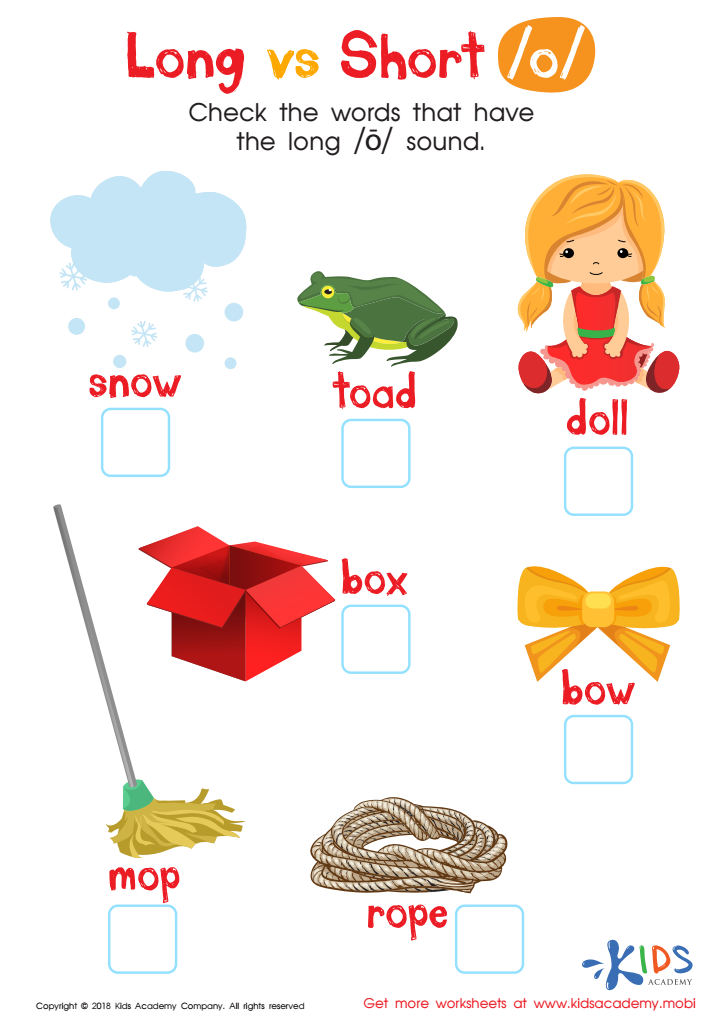

Long vs Short O Reading Worksheet
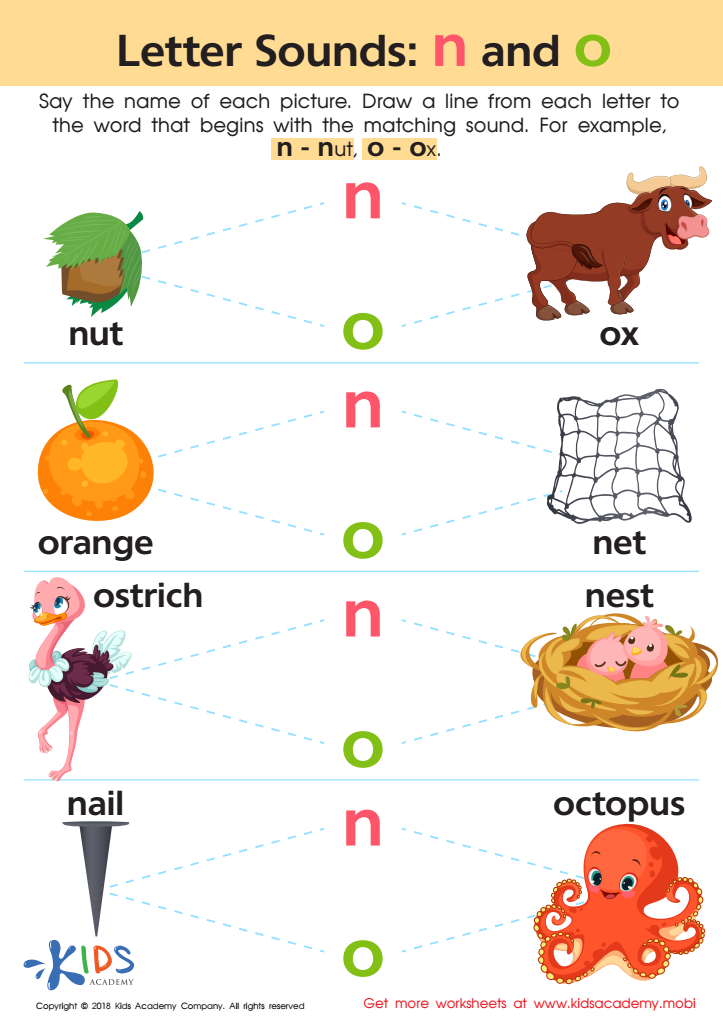

Letter N and O Sounds Worksheet


Vowel and Consonant Sounds: Assessment Worksheet
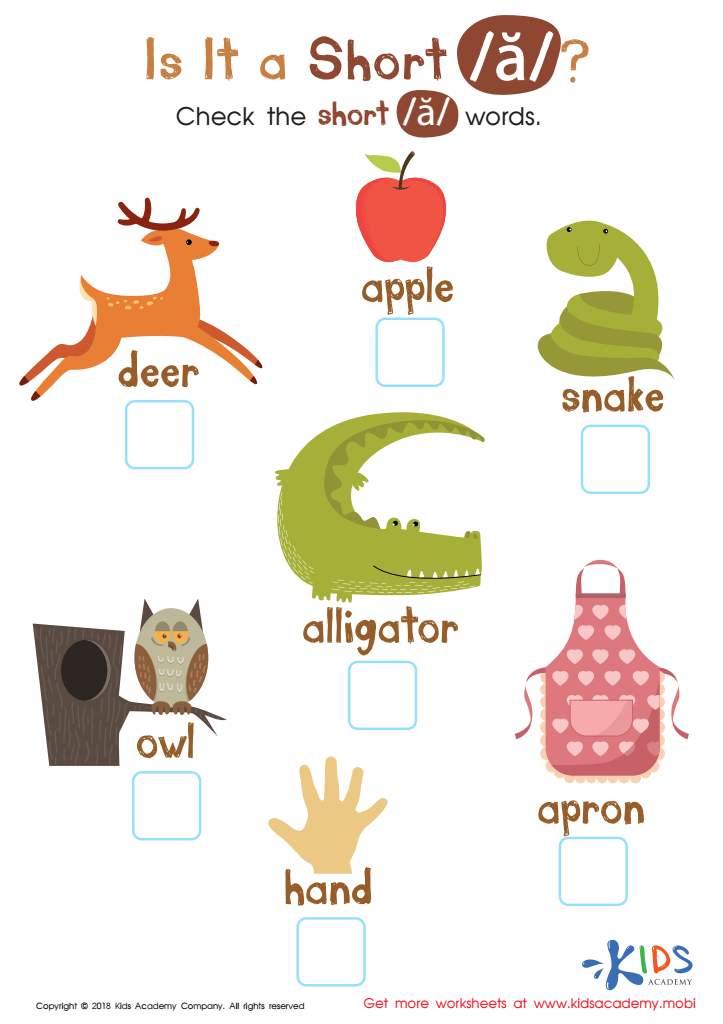

Is It Short A? Reading Worksheet
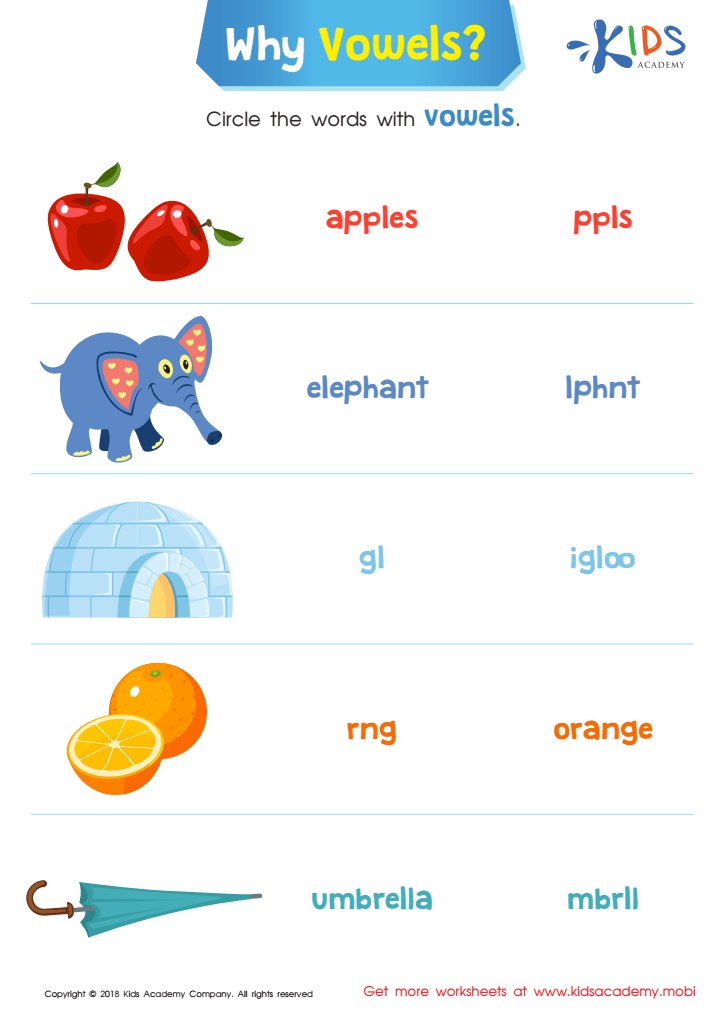

Why Vowels? Reading Worksheet
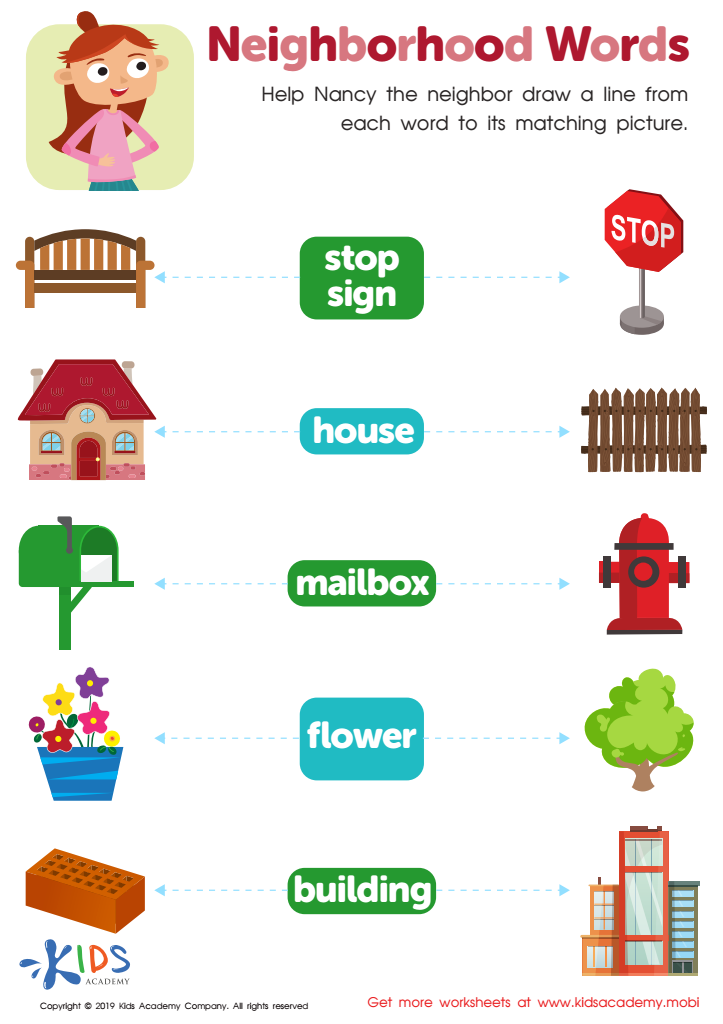

Neighborhood Words Worksheet
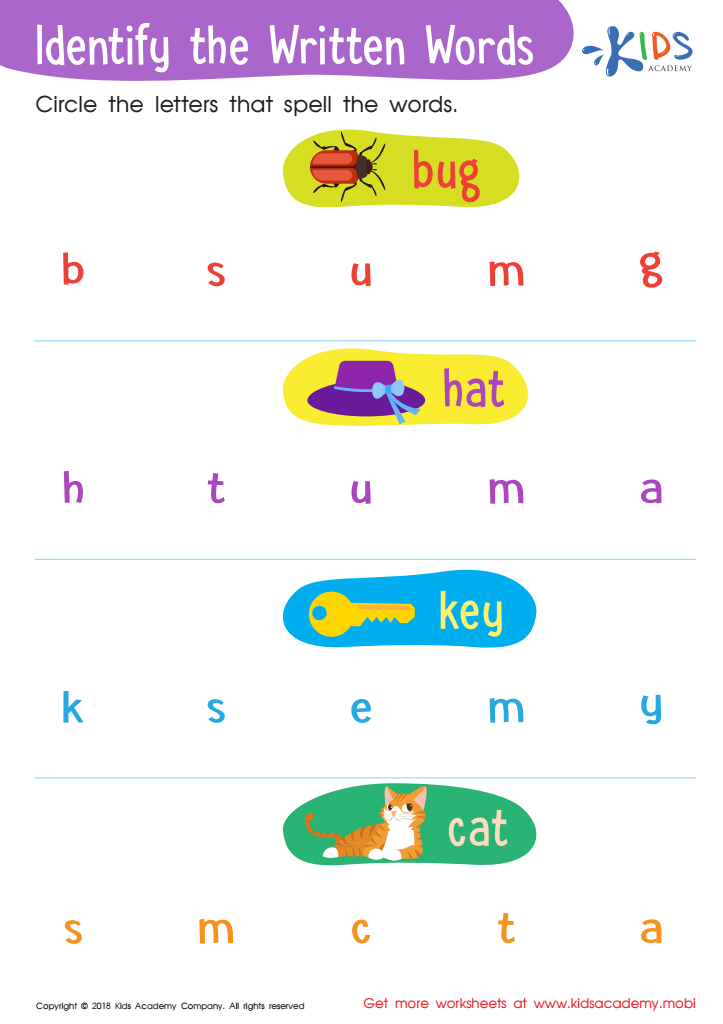

Identify the Written Words Worksheet
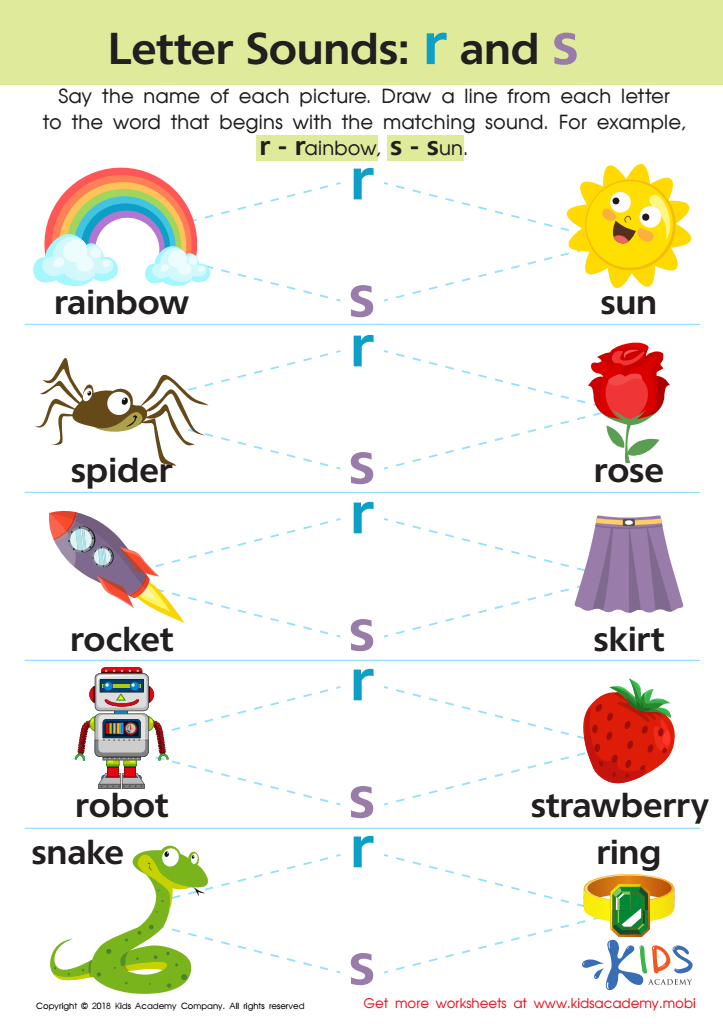

Letter R and S Sounds Worksheet


Phonological Awareness: Assessment 1 Worksheet
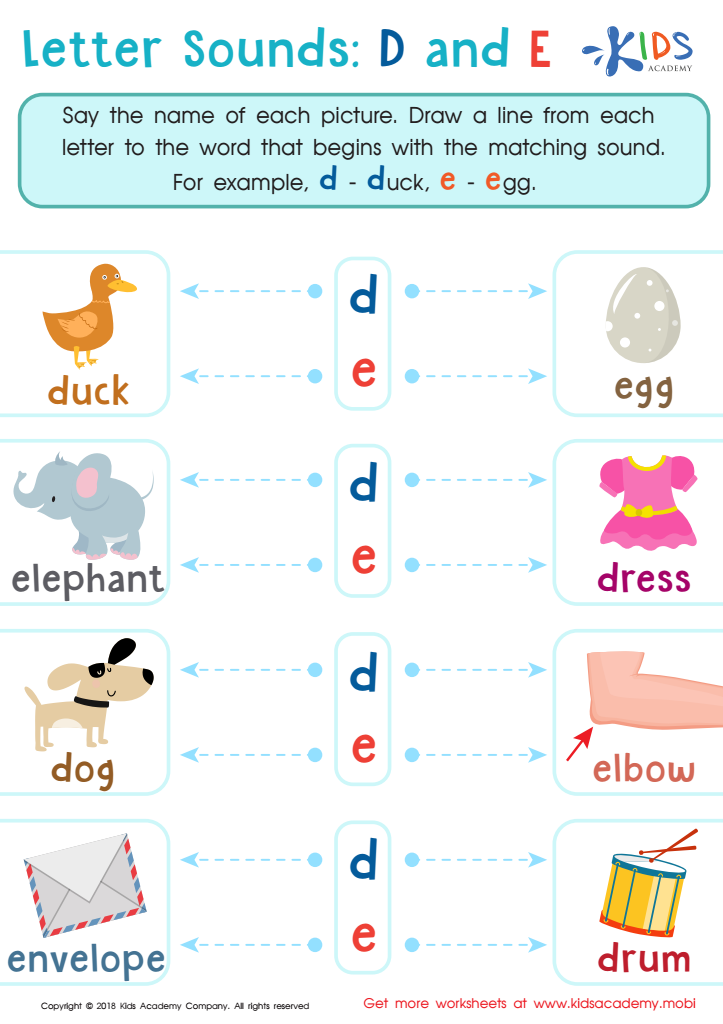

Letter D and E Sounds Worksheet
Parents and teachers should prioritize vocabulary development and normal phonics for children aged 3-5 because these skills lay the groundwork for essential literacy and communication proficiencies. Children in this age group experience rapid brain development, and enriched vocabularies help stimulate cognitive growth and comprehension. Early exposure to varied language sets the stage for reading readiness and ensures children can better express their ideas, needs, and emotions effectively.
Phonics instruction introduces children to the relationship between sounds and letters, a fundamental skill for decoding words during reading. Mastery of phonics aids children in recognizing patterns in words, promoting independent reading skills and spelling accuracy. Having strong phonetic abilities increases the likelihood of academic success as children advance through school, reducing potential learning gaps.
Moreover, developing robust vocabularies and phonics skills fosters confidence. Children who can articulate thoughts clearly and read proficiently are more likely to participate actively in classroom activities and social interactions, supporting their overall developmental progress. Ultimately, a solid foundation in vocabulary and phonics aids in personal, academic, and emotional growth, giving children the critical tools they need to navigate diverse life experiences and educational challenges confidently.
 Assign to My Students
Assign to My Students














